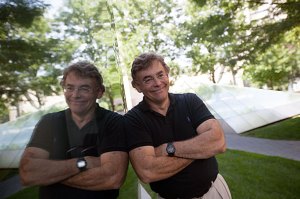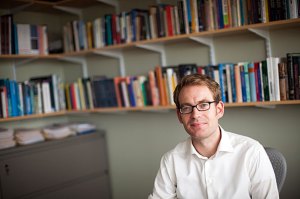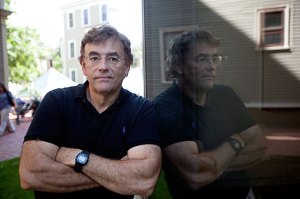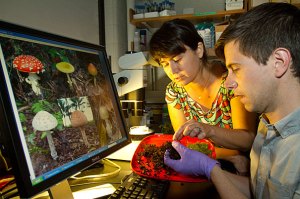Tag: Peter Reuell
-
Health
Controlling behavior, remotely
Researchers have been able to take control of tiny, transparent worms by manipulating neurons in their brains, using precisely targeted pulses of laser light.

-
Health
Rapid acts of kindness
In a series of experiments, Harvard researchers found that people who make quick decisions act less selfishly than those who deliberate.

-
Health
Forward thinking on HIV
A research team led by Martin Nowak has developed a technique for modeling the effects of various HIV treatments and for predicting whether the treatments will cause the virus to develop resistance.

-
Health
Bringing the psych lab online
A team of researchers from Harvard and Wellesley College shows that data gathered from online volunteers can be just as good as data collected in the lab.

-
Science & Tech
Merging the biological, electronic
For the first time, Harvard scientists have created a type of cyborg tissue by embedding a 3-D network of functional, biocompatible, nanoscale wires into engineered human tissues.
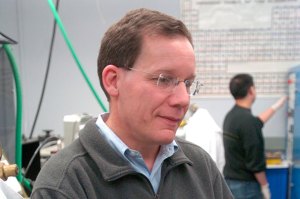
-
Science & Tech
Soft robots go for color, camouflage
Researchers have developed a system — inspired by nature — that allows soft robots to either camouflage themselves against a background, or to make bold color displays. Such a “dynamic coloration” system could one day have a host of uses, ranging from helping doctors plan complex surgeries to acting as a visual marker to help…
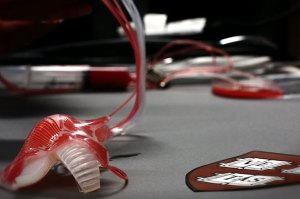
-
Health
Simplifying multidrug therapies
As described in a paper published in the Proceedings of the National Academy of Sciences, a research team found that by studying how drugs interact in pairs, researchers can predict how larger combinations of drugs will interact.
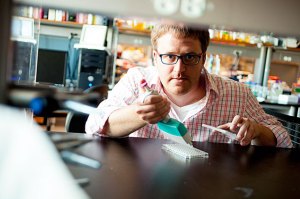
-
Health
Stars in the making
A paper authored by Harvard’s Eli Visbal with colleagues from the California Institute of Technology and Tel Aviv University suggests that it may be far easier than commonly thought to peer deep into the universe’s history and observe the telltale signs of the formation of the first stars and galaxies.
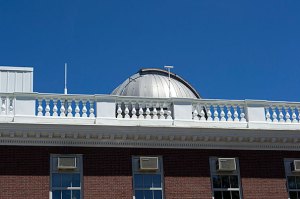
-
Health
Health care savings, naturally
Though questions persist about whether natural remedies are as effective as their pharmacological cousins, one Harvard researcher is trying to understand the economic benefits people receive by relying on such traditional cures.
-
Science & Tech
Concerns about climate change, health
A team of researchers led by James G. Anderson, the Philip S. Weld Professor of Atmospheric Chemistry, warns that a newly discovered connection between climate change and depletion of the ozone layer over the U.S. could allow more damaging ultraviolet (UV) radiation to reach the Earth’s surface, leading to increased incidence of skin cancer.
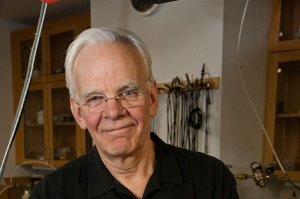
-
Health
A fresh look at mental illness
In a paper published in Neuron, Joshua Buckholtz and co-author Andreas Meyer-Lindenberg identify a biological reason for why many mental disorders share similar symptoms, a situation that makes diagnosis challenging.

-
Science & Tech
Stages of superconductivity
Harvard physicists say they have unlocked the chemical secret that controls the “fool’s gold” of superconductivity, a “pseudogap” phase that mimics, but doesn’t have all the advantageous properties of, superconductivity.

-
Science & Tech
Helping hunt for the Higgs
For decades, it has been the holy grail of particle physics, an elusive subatomic particle that offered the tantalizing possibility of explaining how much of the universe works. Billions of dollars have been spent in the search for it. Thousands of researchers — including dozens from Harvard — have conducted trillions of experiments as part…

-
Health
Transforming cancer treatment
Professor Martin Nowak is one of several co-authors of a paper, published in Nature on June 28,that outlines a new approach to cancer treatment that could make many cancers manageable, if not curable, by overcoming resistance to certain drug treatments.

-
Health
One million species, and counting
Just weeks after adding its millionth Web page, the online biology clearinghouse called the Encyclopedia of Life (EOL) has received a grant from the Sloan Foundation that will allow it to continue its mission of documenting every living plant and animal species on the globe.
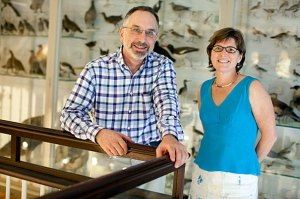
-
Science & Tech
Quantum computing, no cooling required
Using a pair of impurities in ultra-pure, laboratory-grown diamonds, researchers have created room-temperature quantum bits and have stored information in them for nearly two seconds — an increase of nearly six orders of magnitude over the life span of earlier systems. The work, described in the June 8 issue of Science, is a critical first…
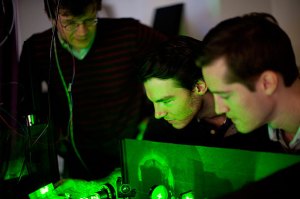
-
Science & Tech
Planet probe
In a paper published in the June 7 issue of Nature, Associate Professor Sujoy Mukhopadhyay presents evidence that the Earth’s deep mantle incorporated gas found in the solar nebula in the first few millions of years of the solar system’s formation.
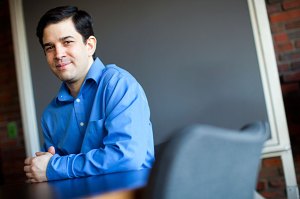
-
Health
The growing brain
As reported on June 7 in the journal Neuron, a team of researchers led by Professor Jeff Lichtman has found that just days before birth mice undergo an explosion of neuromuscular branching. At birth, the research showed, some muscle fibers are contacted by as many as 10 nerve cells. Within days, however, all but one…
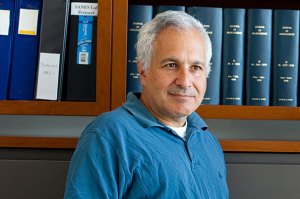
-
Health
Climbing out of hiding
For decades, scientists have been stymied in their attempts to better understand proboscis anole, a small lizard whose defining feature is a horn on its nose, because it appeared to be all but extinct — until now.
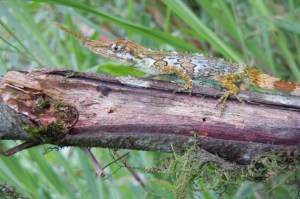
-
Health
The problem of pre-existing mutations
In a critical step that may lead to more-effective HIV treatments, Harvard scientists have found that, in a small number of HIV patients, pre-existing mutations in the virus can cause it to develop resistance to the drugs used to slow the progression of the disease.
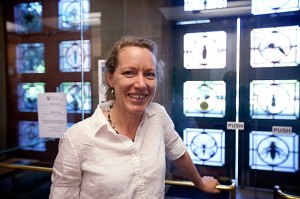
-
Health
Tracing the brain’s connections
A team of researchers is using a genetically modified version of the rabies virus to create the first comprehensive list of inputs that connect directly to dopamine neurons in two regions of the brain.
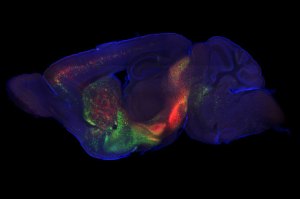
-
Health
‘Stealing’ life’s building blocks
Researchers have found that a parasitic flower takes large portions of its genetic code from its host, and that some genes borrowed by the flowers may even be functional. The surprising finding suggests that the process may convey some evolutionary advantage to the flowers.

-
Health
Probing the sparrow’s beastly past
A new study led by Harvard scientists shows that birds are, essentially, living dinosaurs, with skulls that are remarkably similar to those of their juvenile ancestors.

-
Science & Tech
Straight to the source
As described in an April 23 paper in the Proceedings of the National Academy of Sciences (PNAS), graduate students Eric Morrow and Carling Hay demonstrate the use of a statistical tool called a Kalman smoother to identify “sea level fingerprints” — telltale variations in sea level rise — in a synthetic data set. Using those…

-
Health
Signs of progress against PTSD
A decade after the start of the wars in Afghanistan and Iraq, studies have shown that the incidence of post-traumatic stress disorder (PTSD) among troops is surprisingly low, and a Harvard researcher credits the drop, in part, to new efforts by the Army to prevent PTSD, and to ensure that those who develop the disorder…
